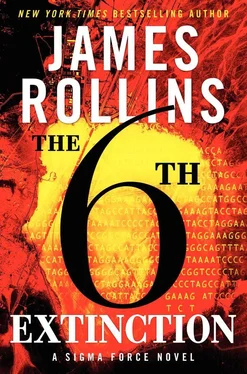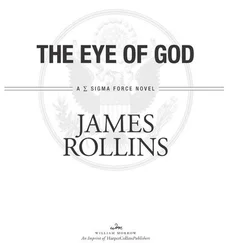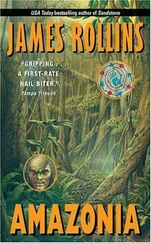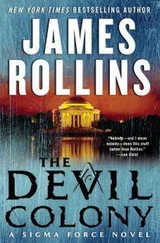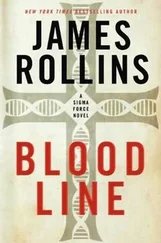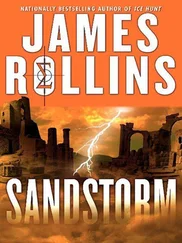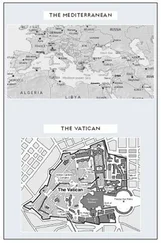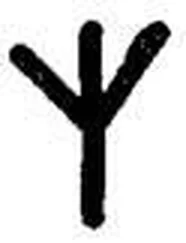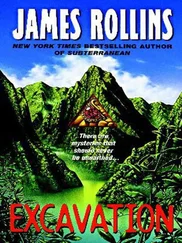But then everything changed.
He studied Cutter’s back, noting how he slightly favored his right side. While on a mission to thwart poachers in the Serengeti, Cutter was mauled by an African lion, one of the very creatures he had sought to protect. He had almost died— did die, at least for a minute on the operating table. His recovery had been long and painful.
Most people would have taken such a horrible, disfiguring event as a reason to turn their back on their causes, but instead, Cutter only became that much more dedicated. It was as if by surviving the raw fury of that lion — that literal representation of nature’s tooth and claw — he had somehow been infused with even more passion. But it also changed him. While he remained an environmentalist, his fervor became driven by a more nihilistic philosophy. He founded a new group, one of like-minded individuals, called Dark Eden, whose goal was no longer conservation, but to accept that the world was falling apart and to prepare for it, to perhaps even help it along, to look beyond the current mass extinction to a new genesis, a new Eden.
Over a short period of time, his actions became more radicalized, his followers manic. Eventually he was convicted in absentia on multiple charges, by multiple countries, and was forced to flee underground. It was while running from authorities that he suffered his plane crash.
Though now it was plain that his death had been a ruse all along, part of a greater plan for Dark Eden.
But what did he intend?
Cutter led him to an impressive stone staircase that swept upward. A woman descended toward them, dressed in a simple white shift that showed off the beauty of her burnished skin as it did her curves.
Cutter’s voice softened. “Ah, Kendall, let me introduce you to the mother of my children.” He held out a hand and helped her off the last step. “This is Ashuu.”
The woman gave a small bow of her head, then turned her full attention upon Cutter, her dark eyes almost glowing in the lamplight. Her voice was a silky whisper. “ Tu fait une promesse à ton fils .”
Kendall translated the French.
You made a promise to your son .
“I know, my dear. As soon as I get our guest settled, I’ll see to him.”
She tenderly touched Cutter’s cheek with the back of her soft hand, then nodded to Mateo. “ Bienvenue, mon frère .”
She then turned and headed back up the stairs.
Kendall frowned and stared back at Mateo.
Frère .
Brother.
Kendall searched the scarred countenance of the giant shadowing him. From the woman’s sheer beauty, he would never have fathomed that these two were brother and sister, but now brought to his attention, he could see a vague family resemblance.
Cutter touched Kendall’s elbow and pointed to the back of the hall. “Mateo will take you to your room. I’ll see you in the morning. I have important business of my own to attend to before I retire.” He shrugged with his usual rakish charm. “As my dear wife reminded me… une promesse est une promesse .”
A promise is a promise.
Cutter followed Ashuu up the stairs.
As Mateo roughly grabbed Kendall’s shoulder and manhandled him away, he kept his eyes on Cutter’s back, picturing the scars that had so radically transformed the man — both inside and out.
Why did you bring me here?
He suspected the answer already.
And it terrified him.
11:56 P.M.
Small fingers clutched Cutter’s hand as he descended the steps carved into the sandstone floor of the tunnel.
“Papa, we must hurry.”
Cutter smiled as his son dragged him faster, with the heedless abandon that only came with youth. At only ten, Jori found wonder in everything, his raw curiosity shining from every inch of his handsome face. He had his mother’s soft features and mocha skin, but his eyes were his father’s, shining a clear blue. Many a local witch doctor had touched the boy’s face, staring into those eyes, and declared him special. One Macuxi elder described his son the best: This one was born to see the world only through cloudless skies .
That was Jori.
His blue gaze was always open for the next wonder.
It was what drove the pair of them for this midnight hike through the subterranean tunnels. They were headed to the living biosphere he had established on the tepui — or rather inside it.
Most of these sandstone summits were riddled with old caves and tunnels, formed as the soft rock was worn away by eons of rain and running water. It was said the cavern systems found here were the oldest in the world. So it was only appropriate that these ancient passageways had become the forges for what was to come.
The bare bulbs running along the tunnel roof revealed a steel door ahead, blocking the way forward. Cutter stepped to the electronic deadbolt and used a keycard from around his neck to unlock it. With a quiet whirring, a trio of wrist-thick bolts wound out of the doorframe.
“Ready?” he asked and checked his watch.
Three minutes before midnight.
Perfect .
Jori nodded, bouncing a bit on the balls of his feet.
Cutter hauled open the door to another world — the next world.
He led his son onto the landing outside the hatch. Overhead a light misty drizzle fell out of the sky and down into the depths of the massive sinkhole before him. Their overlook jutted fifteen feet below the lip of that cylindrical hole. A corkscrewing wide ledge ran along the sinkhole’s inside walls, skimming from the plateau summit all the way to the base of the tepui. The hole was massive, three hundred meters across, but it was still a third smaller than its cousin, the giant sinkhole at the Sarisariñama tepui in Venezuela.
Still, this smaller confined ecosystem served his purposes beautifully.
The hole acted as an island within an island.
It was these same tepuis that inspired Sir Arthur Conan Doyle to write The Lost World , populating these islands among the clouds with the living remnants of a prehistoric past, a violent world of dinosaurs and pterodactyls. To Cutter, the reality was more thrilling than any Victorian fantasy. For him, each tabletop was a Galápagos in the sky, an evolutionary pressure cooker, where each species struggled to survive in unique ways.
He stepped to the wall, festooned with a riotous growth of vegetation, dripping with dampness, soaked in mists. He gently pointed to a small flower with white petals. Its tendril-like leaves were covered by tiny stalks, each tipped with a glistening sticky drop.
“Can you name this one, Jori?”
He sighed. “That’s easy, Papa. That’s a sundew. Dro… dro…”
Cutter smiled and finished for the boy. “ Drosera .”
He nodded vigorously. “They catch ants and bugs and eat them.”
“That’s right.”
Such plants were the foot soldiers in an evolutionary war up here, evolving distinctive survival strategies to compensate for the lack of nutrients and scarce soil found atop these tepuis, becoming carnivorous in order to live. And it wasn’t just sundews, but also bladderworts, pitcher plants, even some bromeliad species had developed a taste for insects on this island in the sky.
“Nature is the ultimate innovator,” he mumbled.
But sometimes nature needs a hand .
As midnight struck, a soft phosphorescence bloomed along the walls, flowing from the top toward the dark bottom.
Jori clapped his hands. This is what his son had come to see.
Cutter had engineered the glowing gene of a jellyfish into the DNA of a ubiquitous species of orchid that grew upon this tepui, including instilling a circadian rhythm to its glow cycle. Besides the pure beauty of it, the design offered illumination at night for the workers who tended to this unnatural garden.
Читать дальше
